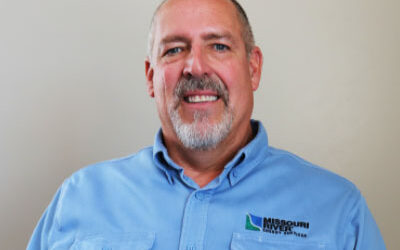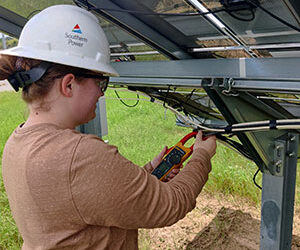Matt Overton spends many of his days in the field protecting birds, bats, and bees. Lora Anguay is leading her company’s charge to be carbon-free by 2030. Nick Popielski is making sure his company’s efforts to battle climate change are credible and effective.
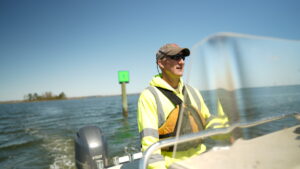
Matt Overton
Maybe not jobs many people associate with the energy industry, but environmental stewardship is a growing full-time occupation at the nation’s energy companies. “If you feel strongly about the environment, what better place to work than at a company that provides energy using a natural resource every day?” said Popielski, Head of Environmental Commitment at natural gas company Spire Inc. in St. Louis, MO. “You have the ability to work on projects that genuinely can affect your environment on a long-term basis. You’re not going to get that from a lot of other jobs that may sound sexier.” The U.S. energy industry already has made major gains in reducing its environmental impact. Carbon dioxide emissions from electricity generation have fallen by a third since 2007. Natural gas companies have reduced emissions of a more-potent greenhouse gas, methane, by three-quarters since 1990. People such as Overton, Anguay, Popielski and tens of thousands of others are dedicated to building on that record. Overton is a biological consultant with Dominion Energy in Richmond, Va. He is Dominion’s “subject-matter expert” on birds, bats, and botany. Field work can range from helping with a fish survey to making sure a solar power plant is planted with ground cover favored by pollinators. One favorite project involved creating a system to protect bats from harm at power stations.
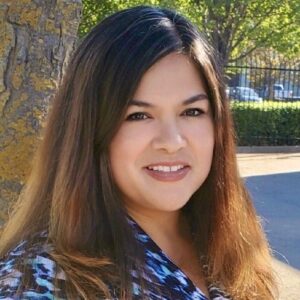
Lora Anguay
People are often surprised when Overton tells them what he does and where he works. “They have no idea,” he said. “They can’t think of a reason why Dominion would need a biologist.” Energy companies employ – and are hiring – many thousands whose work is aimed at improving environmental stewardship. Along with ecologists and chemists, jobs range from engineers who design new renewable energy projects and construction workers who build them to finance experts who raise the billions of dollars needed for new investments. For Anguay, part of the excitement is the size of the challenge. She is Chief Zero Carbon Officer at the Sacramento Municipal Utility District, better known as SMUD. Her team’s goal is to ensure that all electricity for SMUD’s customers in north-central California will soon come from carbon-free sources. “Our goal is absolute zero,” Anguay said. “We’re calling it our moon shot. We have to do it in a way we don’t sacrifice affordability and we don’t sacrifice reliability.” A one-time Coast Guard drop master for C-130 cargo planes, Anguay is no stranger to the need for combining precision and creative problem solving. Her job is more than just making sure that the power comes from clean sources. Impacts on the grid from increased use of intermittent sources such as solar and wind need to be considered along with the growing number of electric vehicles and home battery systems.
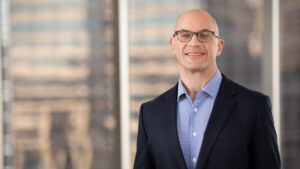
Nick Popielski
“It’s not just about changing our power supply,” Anguay said. “It’s about how we are leveraging our distribution system.” Popielski likes to think it was karma that led to his being appointed to his role at Spire. As the company was deciding to become carbon-neutral by mid-century, he was asking so many questions leadership said, “Nick, why don’t you head it?” Popielski recognizes that natural gas companies are committed to delivering natural gas cleanly and more efficiently and to utilizing our infrastructure to distribute the energy sources of the future. “We want to be good stewards of the environment,” he said. “The challenge is how do we figure out how to make that work for our customers.”


